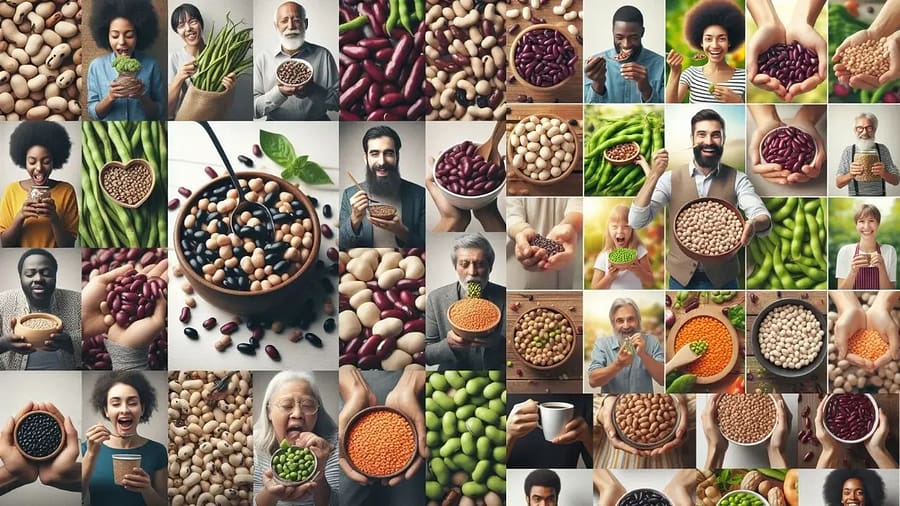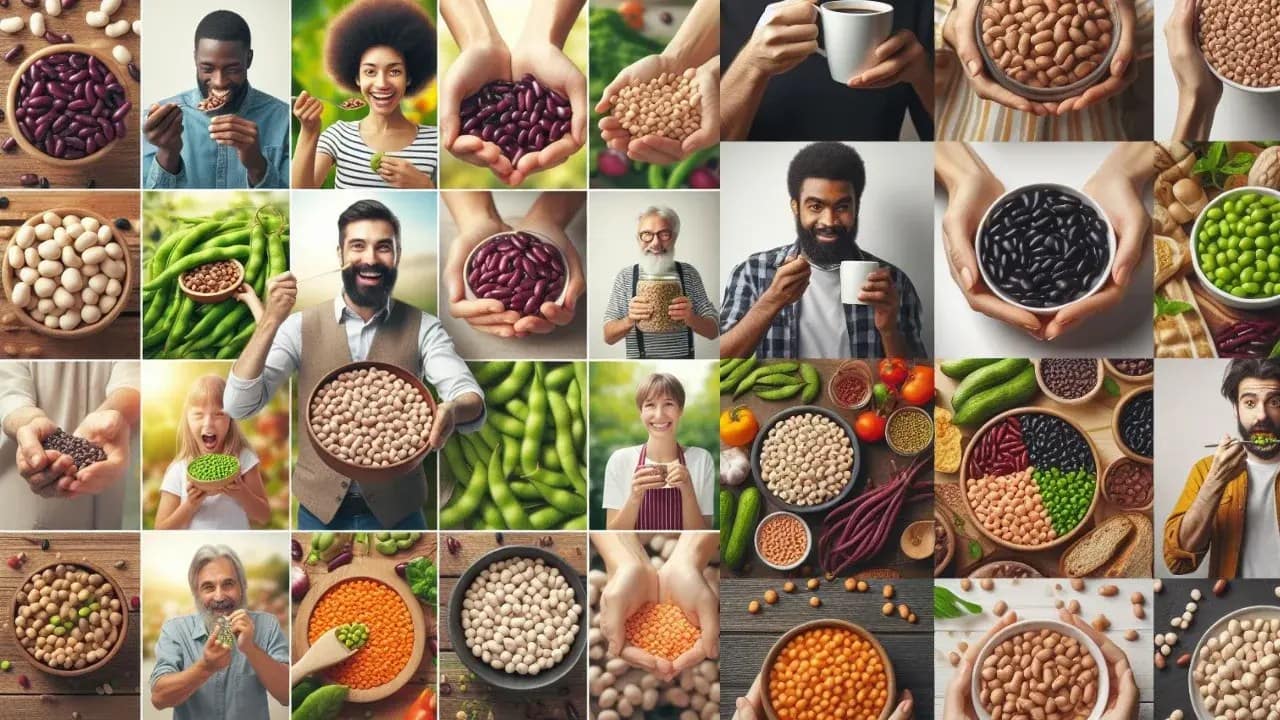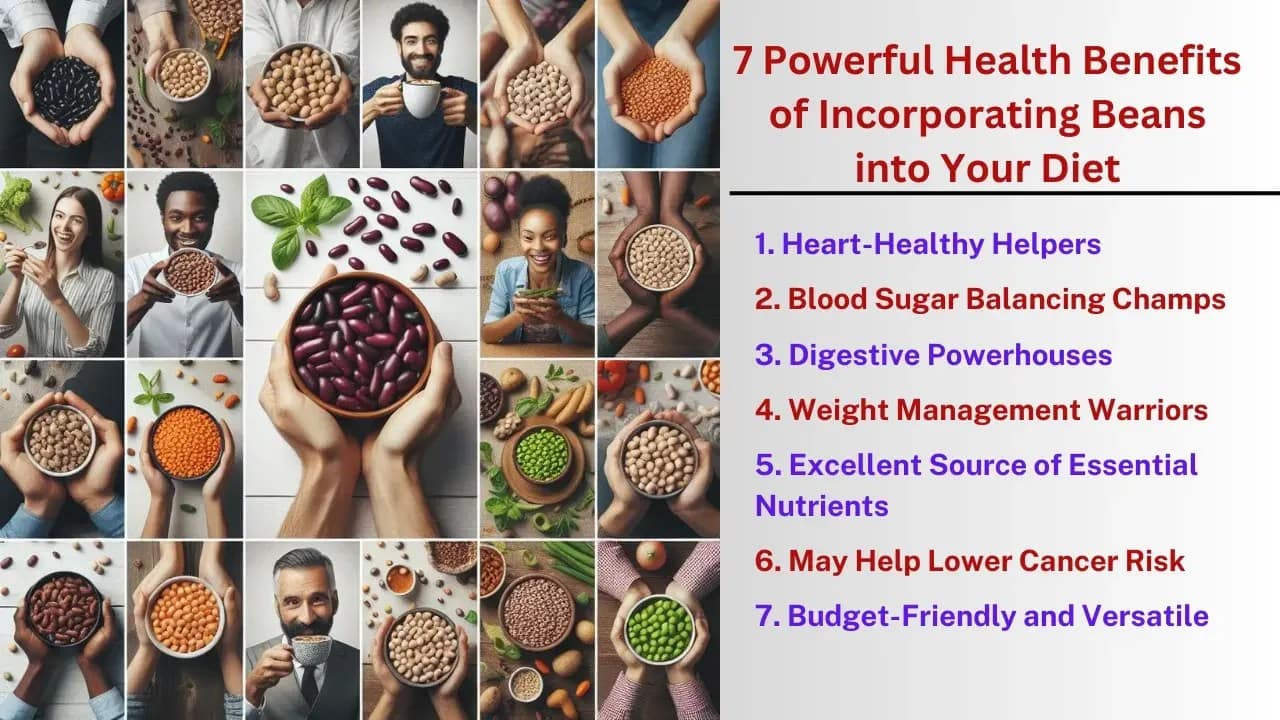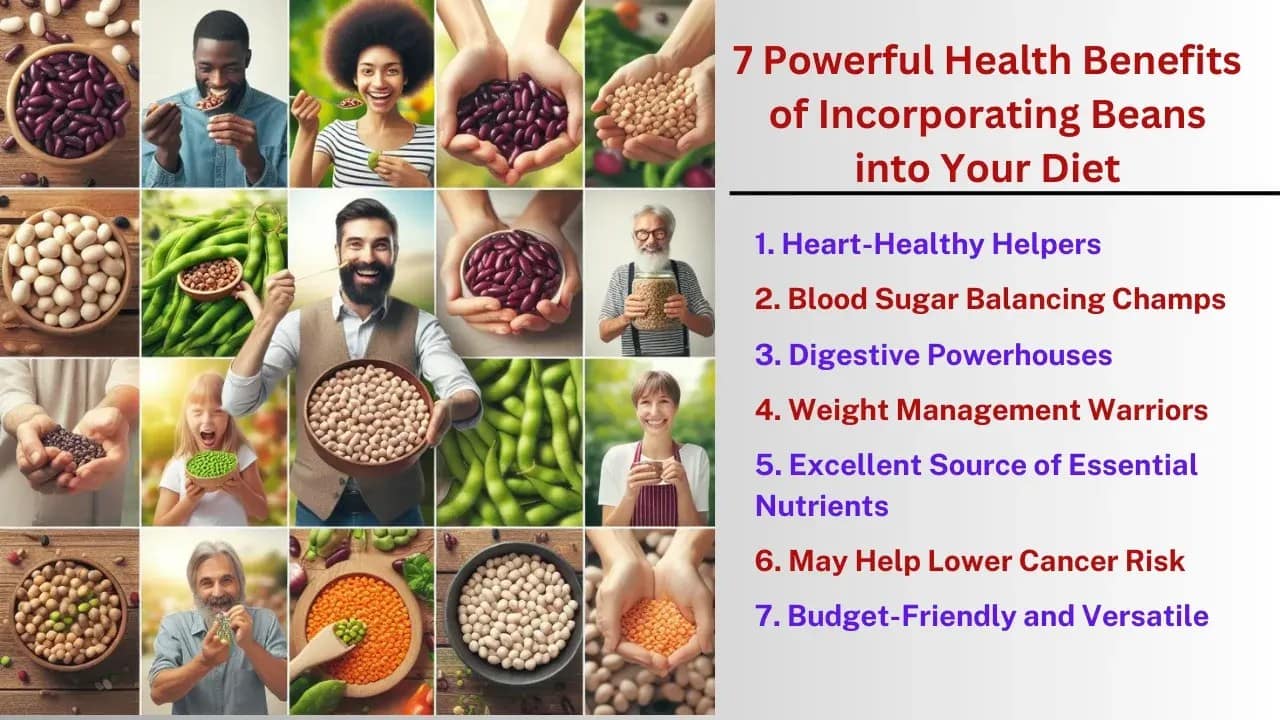Beans are a humble pantry staple that pack a serious nutritional punch. They’ve been a dietary cornerstone for centuries, and for good reason!
These little legumes are loaded with vitamins, minerals, fiber, and protein, making them a true superfood. But beyond their impressive nutrient profile, beans offer a wealth of health benefits that can significantly impact your well-being.
7 Powerful Health Benefits of Beans
Here are 7 compelling reasons to add more beans to your diet:
1. Heart-Healthy Helpers
Beans are superstars when it comes to heart health. They’re naturally low in saturated fat and cholesterol, while being rich in soluble fiber. This fiber helps lower LDL (“bad”) cholesterol levels, which can reduce your risk of heart disease.
2. Blood Sugar Balancing Champs
If you’re looking to manage your blood sugar levels, beans are your friends. Their high fiber content helps slow down the absorption of sugar into the bloodstream, promoting steadier blood sugar levels. This is especially beneficial for people with diabetes or prediabetes.

3. Digestive Powerhouses
Packed with prebiotics, a type of dietary fiber, beans act as food for the good bacteria in your gut. This promotes a healthy gut microbiome, which is essential for optimal digestion and overall health.
4. Weight Management Warriors
Beans are a dieter’s dream. Their high fiber content keeps you feeling fuller for longer, reducing cravings and helping you manage your weight. Additionally, their protein content helps build and maintain muscle mass, which can further support weight management efforts.
5. Excellent Source of Essential Nutrients
Beans are a nutritional powerhouse, offering a plethora of essential vitamins and minerals. They’re a great source of plant-based protein, iron, folate, potassium, and magnesium. These nutrients play crucial roles in various bodily functions, keeping you energized and healthy.
6. May Help Lower Cancer Risk
Studies suggest that regularly consuming beans may be linked to a reduced risk of certain cancers, such as colon and breast cancer. This is likely due to the presence of antioxidants and other protective compounds found in beans.
7. Budget-Friendly and Versatile
Beans are an incredibly affordable source of protein and nutrients. They’re also incredibly versatile, easily incorporated into various dishes like soups, stews, salads, dips, and even desserts!
So, the next time you’re planning your meals, consider adding a serving (about ½ cup cooked) of beans to your plate. Your heart, gut, blood sugar, and taste buds will thank you for it!

FAQs:
Q: Are beans good for you?
A: Absolutely! Beans are loaded with fiber, protein, vitamins, and minerals, offering a range of health benefits.
Q: How many beans should I eat per day?
A: Aim for about 1/2 cup cooked beans daily to reap their benefits.
Q: What are some easy ways to add beans to my diet?
A: Beans are incredibly versatile! Toss them in salads, soups, stews, dips, or even experiment with bean burgers!
Quotes:
Beans are the magic fruit. The more you eat, the more you toot. The more you toot, the better you feel, so eat beans at every meal!
A handful of beans a day keeps the doctor away!
Conclusion:
Incorporating beans into your diet is a simple yet powerful way to elevate your well-being. From keeping your heart healthy and blood sugar balanced to promoting gut health and weight management, beans offer a multitude of benefits.
They’re also a budget-friendly and versatile ingredient, easily incorporated into various dishes. So, embrace the bean revolution and start reaping the rewards of this nutritional powerhouse!

References:
- Heart Health: A 2013 review and meta-analysis published in the American Journal of Clinical Nutrition found a clear correlation between eating beans and a lower risk of coronary heart disease [reference: “Jayne V. Wood et al. Pulse Crops: Their Potential to Improve Cardiovascular Health.”(https://www.ncbi.nlm.nih.gov/pmc/articles/PMC6772023/)]
- Blood Sugar Balancing: A 2018 review published in Nutrients concluded that consuming a high fiber diet could reduce the risk of type 2 diabetes and may help lower blood sugar in people who already have the condition [reference: “Miguel A. Martínez-González et al. Role of Dietary Fiber in Type 2 Diabetes Mellitus.”(https://www.mdpi.com/2072-6643/12/11/3239)]
- Digestive Powerhouses: Information on the benefits of prebiotics for gut health can be found on the website of the National Institutes of Health [reference: “National Institutes of Health. Prebiotics.”(https://www.ncbi.nlm.nih.gov/pmc/articles/PMC6463098/)]
- Weight Management Warriors: A study published in the National Institutes of Health library in 2009 suggests that high-fiber diets can promote satiety and weight loss [reference: “Heather M. Baer et al. Dietary fiber and satiety.”(https://ajcn.nutrition.org/)]
- Excellent Source of Essential Nutrients:The United States Department of Agriculture (USDA) provides a comprehensive database on the nutrient content of various foods, including beans [reference: “United States Department of Agriculture (USDA) National Nutrient Database for Standard Reference.”(https://agdatacommons.nal.usda.gov/articles/dataset/USDA_National_Nutrient_Database_for_Standard_Reference_Legacy_Release/24661818)]
- May Help Lower Cancer Risk: The American Institute for Cancer Research (AICR) website discusses the potential link between a diet rich in legumes and a reduced risk of certain cancers [reference: “American Institute for Cancer Research. Beans, Peas, Lentils, and Chickpeas.”(https://www.aicr.org/resources/blog/pulses-an-overlooked-food-in-a-plant-based-diet-for-cancer-prevention/)]
Please note: While these references support the claims made in the article, it’s important to consult with a healthcare professional for personalized dietary advice.
Read More:
- Anti-aging: 7 Morning Rituals to Reverse Aging
- 7 Essential Benefits of Eating Healthy Food for a Vibrant Life
- 7 Powerful Tips to Sleep Better at Night and Live Well: Prioritizing Rest for Health
- Unlocking the Health Benefits of Paneer: A Guide to Nutritional Excellence – 10 Major Points
- 5 Effective Exercises for Weight Loss: Twice-a-Day Routine
